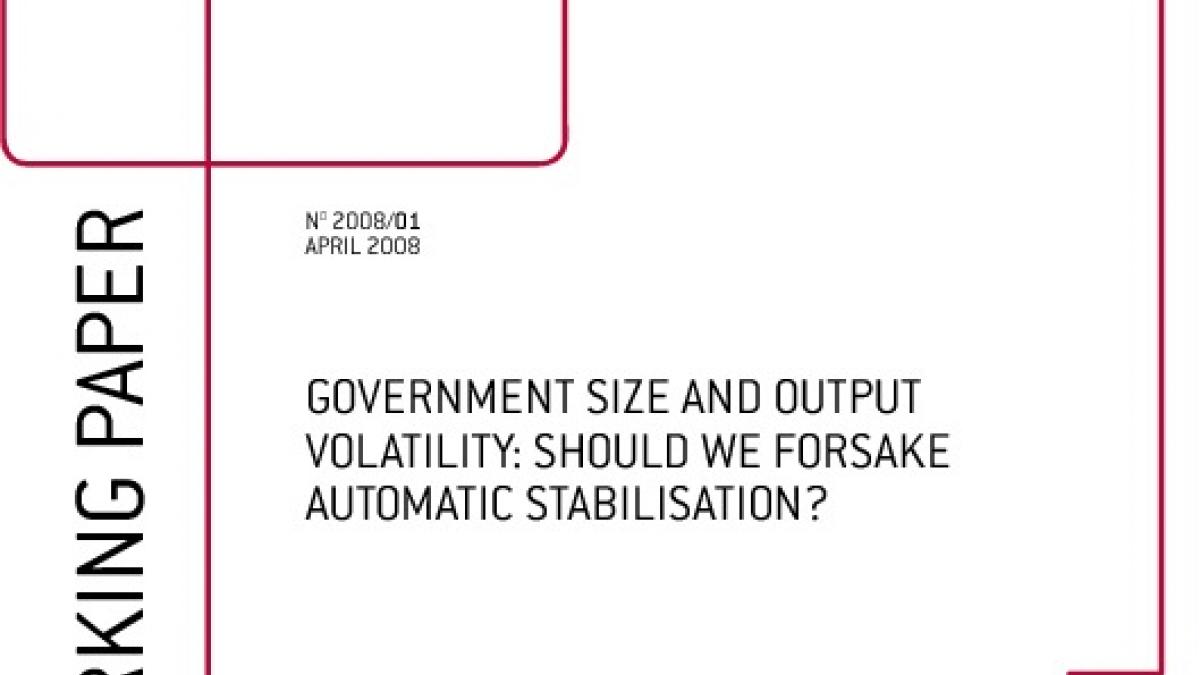Government size and output volatility: should we forsake automatic stabilisation?

In this working paper, Xavier Debrun, Jean Pisani-Ferry and André Sapir explore the relationships between government size and output volatility. Whilst government size contributes to macroeconomic stabilisation, the slow down in output volatility of the 1980s and 90s was due more to a combination of monetary policy improvements and financial developments. That this decline was especially pronounced in small-government countries showed a reduction in the variance of primary income was more important than government transfers and that other channels of stabilisation were available for small-government countries. For most countries in the euro area, the impact of a marginal change in the size of government is bound to be small.



